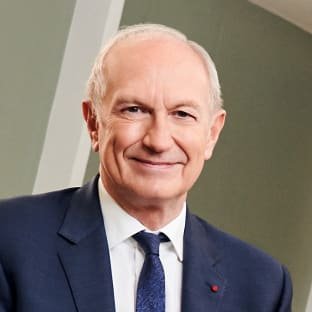
L'Oréal announces its new
Clichy, 3 September 2015 - Reinforcing its commitment to fighting climate change, L'Oréal announces its ambition to become a "carbon balanced" company by 2020. Through its sustainable sourcing projects, the Group aims to generate carbon gains corresponding to the amount of greenhouse gas emissions linked to its activities.
This announcement was made in the presence of Nicolas Hulot, Special Envoy of the President of the Republic of France for the Protection of the Planet and President of the Nicolas Hulot Foundation and Christian de Perthuis, Professor at the Paris Dauphine University and founder of the Climate Economics Chair.
Jean-Paul Agon, Chairman and CEO of L'Oréal, said, "Three months from the COP 21, this renewed commitment shows L'Oréal's will to taking part in the fight against climate change. This initiative demonstrates the Group's capacity to leverage its innovation power in order to address a major environmental challenge alongside its suppliers and communities. Companies must play a leading role in the quest for solutions to the challenges of our time."
Nicolas Hulot, Special Envoy of the President of the Republic of France for the Protection of the Planet and President of the Nicolas Hulot Foundation for Nature and Mankind, said, "Companies have a responsibility and a historic opportunity to fight global warming. If COP 21 is able to forge a coordinated commitment of countries and businesses to enter into a low-carbon economy, this would mark a new chapter in the history of mankind."
Christian de Perthuis, Professor at the Paris Dauphine University and founder of the Climate Economics Chair, who chairs the committee of carbon experts put together by L'Oréal, said, "Voluntary initiatives that explore low-carbon business models, like those of L'Oréal, are an invaluable asset in terms of experimentation and innovation. For them to become more widespread, the COP 21 would have to result in an international agreement that provides the right economic incentives."
Since 2005, L'Oréal has managed to reduce the CO2 emissions of its operations by 50% in absolute terms, while increasing its production by 22% over the same period. By 2020, L'Oréal intends to continue its programme of reducing CO2 emissions, with an objective of a 60% reduction, and has decided to accompany this programme with an innovative plan for delivering carbon gains in cooperation with its raw material suppliers.
- Towards a low carbon sourcing model
Several projects have already been launched to transform the Group's sourcing programmes into low-carbon models: improving energy efficiency in the supply chains, promoting productive low-carbon agricultural practices and forest management projects.
In the villages of Burkina Faso where almost 22,000 women harvest the nuts used to produce shea butter, L'Oréal will help them adopt improved cook stoves which require less wood consumption. This initiative will help reduce the activity's carbon footprint, contribute to fighting deforestation and result in economic savings for producers. It will be carried out in partnership with the Olvéa group, L'Oréal's historical sustainable supplier of shea butter.
In the Jambi province of Indonesia, where L'Oréal sources the patchouli used in the composition of perfumes, a partnership has been developed with Firmenich to create a unique and certified sustainable model, whereby patchouli and cinnamon plants are grown together. The aim is to optimise the use of agricultural land, by providing the producers with an additional regular source of income, therefore avoiding the extension of farmland and consequently limiting deforestation.
- A new carbon accounting methodology and a committee of international experts
To assess this new process, which will be progressively extended to all the Group's sustainable sourcing programmes, L'Oréal has drawn inspiration from international standards for carbon offsetting. To ensure that the programmes are effective, and to guide the teams in the development of this project, L'Oréal has put together an expert committee of international carbon specialists chaired by Christian de Perthuis, Professor at the Paris Dauphine University and Founder of the Climate Economics Chair. This committee will meet once a year to monitor the ad hoc scientific methodology used and evaluate the results which will be published annually.



